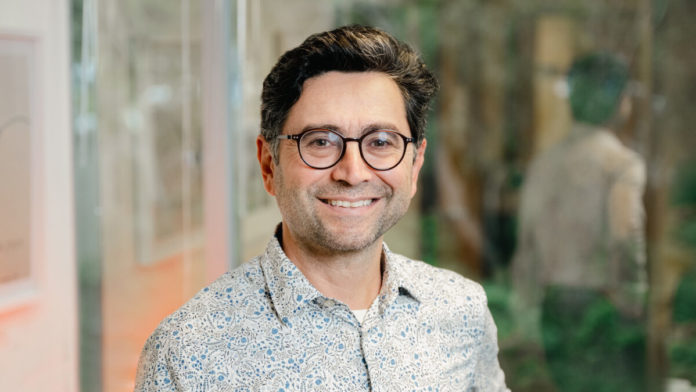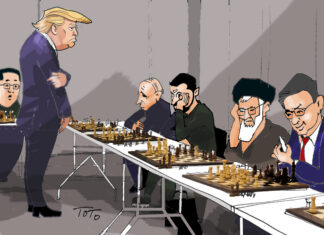By Dr. Ardem Patapoutian
As a boy growing up in war-torn Lebanon, I never could have imagined that moving to America would lead me to a life in science. I grew up amid civil war in Lebanon, where my family had sought refuge after escaping persecution during the Armenian genocide by Ottoman Turks. Our days in Lebanon were filled with uncertainty, violence and the constant awareness that life could drastically change in an instant.
When I arrived in the United States as a young immigrant, I stepped into a country that offered not only safety but limitless potential, powered by education, scientific inquiry and the open exchange of ideas. This country gave me the opportunity to train as a biomedical scientist and to collaborate with dedicated researchers from around the world who, like me, had found a home in the United States. In fact, I would not be here without the federal Pell grant that offered financial aid to me as a college student.
Today, I watch with deep sadness as the United States’ remarkable scientific enterprise, which took generations of hard work and national investment to build, faces a concerted dismantling by the current administration. American science is the envy of the world, but this global leadership is now threatened by draconian cuts to federal support of biomedical research through the defunding of grants and drastic reductions in funding for essential research costs and infrastructure. This will have catastrophic consequences for the US biomedical research and medical sector, choking off the next generation of medical advances and undermining our global competitiveness at a time when other countries are working hard to overtake us.
As for so many scientists, National Institutes of Health funding has been critical to my research. Federal grants supported the experiments in my lab that uncovered the body’s sensors for temperature and touch. These discoveries help us understand, at the molecular level, how we feel a warm hug from a loved one or the prick of a thorn on a rose bush. What began as a curiosity-driven question – “How do you feel?” – has implications far beyond the initial scope, potentially leading to new types of treatments for pain, cardiovascular disease and more. The progress of this research has now been delayed while my lab waits on a crucial research grant that was supposed to start in February on finding new cures for pain.
In fact, nearly every medical advance we rely on today would not exist without curiosity-driven research funded by the NIH and other agencies that supported research at universities and nonprofit institutes across the country. Whether it’s lifesaving cancer therapies like Keytruda and cisplatin or the now-routine use of MRI scanning for diagnosis, the fruits of federally funded research have profoundly reshaped modern medicine and improved countless lives. Beyond medicine, basic research underpinned innovations such as the rechargeable lithium-ion batteries powering electric vehicles and the critical understanding of ozone depletion that preserved our atmosphere.








